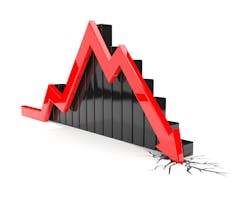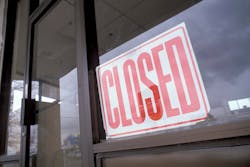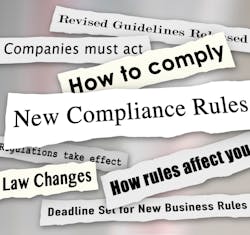Anyone who thinks 2020 is the distant future needs to think again. To be competitive, a business has to plan, but some events are easier to schedule around than others. So one session in the 2016 FTR Virtual Conference Tuesday focused on some “unknowns” that are just around the corner, and how trucking might prepare for these events that are likely—but tricky to pin down.
“In some cases, great opportunities, and in some cases really nasty things that people don’t want to talk about,” Perry said. “These could all throw a monkey wrench in the works. Some are positive, some are negative—but they’re all real. The only issue is we can’t quite figure out the timing. You need to be ready.”
Recession
The recovery from the 2007-2009 Great Recession is “getting stale,” Perry explains. He charted the recovery periods following eight previous downturns, the current recovery has already outlasted four of those. The longest, following the 1991 recession, lasted eight years. That means that, even if the ongoing recovery makes it that long, the U.S. is due for another economic struggle by 2019.
Why? Truck freight typically crashes in a recession, with tonnage falling almost 15% in 2008, and more than 20% in the early 1980s. Perry suggested planning for an 8% reduction in freight volume.
“You need to have that in your three-year plan,” he said. “If you’re putting in capital now, you have to understand that somewhere out there, in the three or four years, there’s going to be a year or two when you’re not going to get any returns on that capital.”
But that’s not the really bad news.
Depression!
(The exclamation mark is Perry's)
Global sovereign debt continues to grow. The financial crisis in Greece is just an early sign of problems to be faced by borrower countries around the world, including the U.S.
“At some point, that bill is going to come due—and we don’t want to face it,” Perry said. “And that’s only going to make it worse. The result is something called a ‘depression.’ If you think depression will never happen again, it’s happening right now in Greece.”
“At some point we’re going to have put up with the same problem because we have this borrowing jag that we can’t get off of,” he said. “It’s unlikely we will vote to solve the problem beforehand, because it means pain. Not one of the candidates [for president] is saying, ‘I’m going to cut your benefits and raise your taxes.’”
Perry figures a depression could be expected in the 2020s. He also noted that depressions “do end,” and he pointed to the dramatic economic recovery in the U.S. by the mid-1930s—although psychologically and socially, the recovery took longer.
“The recovery becomes strong because, when you have a depression, you clean out the crap that caused the problem in the first place,” Perry said.
Regulatory drag
The impact of the DOT’s regulatory agenda on capacity utilization will be unprecedented by 2019, Perry explained.
“For truckers, it’s an upside opportunity. For shippers, it’s a downside,” he said.
The caveat is the demand side of the equation. A recession would likely mean that utilization will remain below the level of a capacity crunch. But any improvement in the economy would elevate that crunch to “the mother of all capacity crises” at well above 100% utilization.
Productivity revolution
Looking beyond the capacity crisis and toward 2030, however, Perry points to the digital tools now being developed to more efficiently manage the supply chain and the range of trucking’s operational costs: risk, fuel, drivers, and productivity. All in, these could add up to savings of more than $1 per mile—of half of the current costs.
He pointed to the way ride sharing technology has turned the taxi market upside down—and no one saw it coming. But he had an even bolder prediction.
So in 15 years, the highways will be capable of managing automated passenger vehicles—and “if we’re automating the highway for your Uber ride, then we have to automate the trucks, too.”
“Automation will lead a revolution as important to the economy—and to the industry—as the invention of the super-highway in the early 1950s,” Perry said. “If you think this is ‘pie in the sky’ stuff, just look in the newspaper and all of the talk about automating cars. It’s already in the marketplace. Remarkable.”








